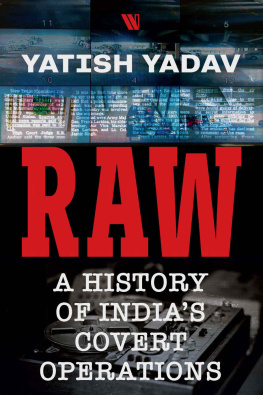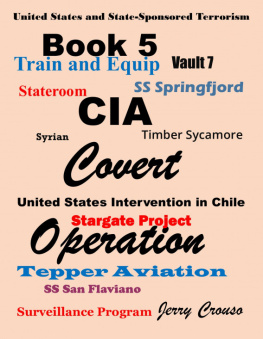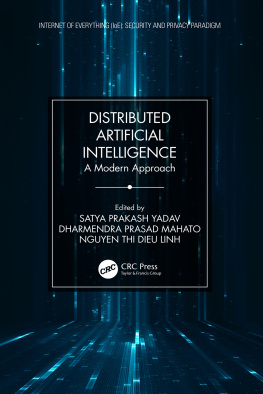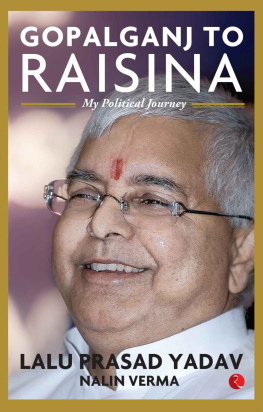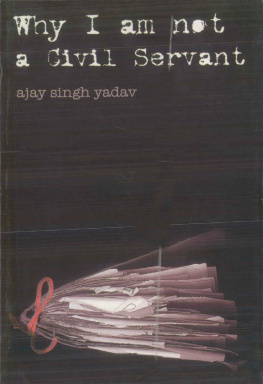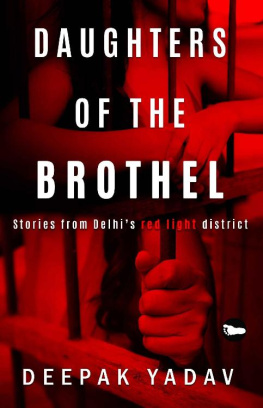Yatish Yadav - RAW: A History of Indias Covert Operations
Here you can read online Yatish Yadav - RAW: A History of Indias Covert Operations full text of the book (entire story) in english for free. Download pdf and epub, get meaning, cover and reviews about this ebook. year: 2020, publisher: Westland Publications Limited, genre: Politics. Description of the work, (preface) as well as reviews are available. Best literature library LitArk.com created for fans of good reading and offers a wide selection of genres:
Romance novel
Science fiction
Adventure
Detective
Science
History
Home and family
Prose
Art
Politics
Computer
Non-fiction
Religion
Business
Children
Humor
Choose a favorite category and find really read worthwhile books. Enjoy immersion in the world of imagination, feel the emotions of the characters or learn something new for yourself, make an fascinating discovery.
- Book:RAW: A History of Indias Covert Operations
- Author:
- Publisher:Westland Publications Limited
- Genre:
- Year:2020
- Rating:5 / 5
- Favourites:Add to favourites
- Your mark:
- 100
- 1
- 2
- 3
- 4
- 5
RAW: A History of Indias Covert Operations: summary, description and annotation
We offer to read an annotation, description, summary or preface (depends on what the author of the book "RAW: A History of Indias Covert Operations" wrote himself). If you haven't found the necessary information about the book — write in the comments, we will try to find it.
RAW: A History of Indias Covert Operations — read online for free the complete book (whole text) full work
Below is the text of the book, divided by pages. System saving the place of the last page read, allows you to conveniently read the book "RAW: A History of Indias Covert Operations" online for free, without having to search again every time where you left off. Put a bookmark, and you can go to the page where you finished reading at any time.
Font size:
Interval:
Bookmark:

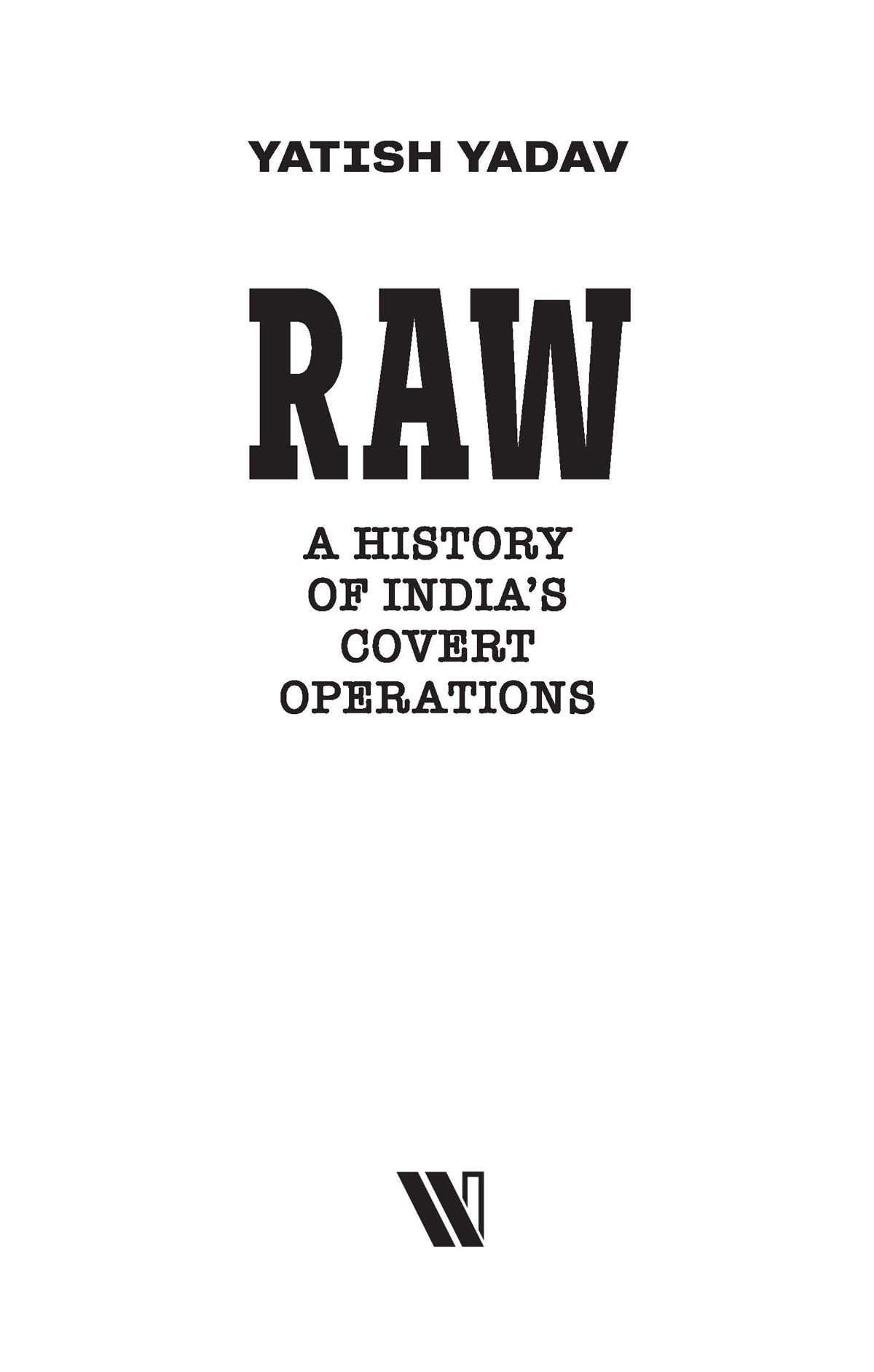
First published by Westland Publications Private Limited in 2020
1st Floor, A Block, East Wing, Plot No. 40, SP Infocity, Dr MGR Salai, Perungudi, Kandan-chavadi, Chennai 600096
Westland and the Westland logo are the trademarks of Westland Publications Private Limited, or its affiliates.
Copyright Yatish Yadav, 2020
ISBN: 9789389648096
The views and opinions expressed in this work are the authors own and the facts are as reported by him, and the publisher is in no way liable for the same.
All rights reserved
No part of this book may be reproduced, or stored in a retrieval system, or transmitted in any form or by any means, electronic, mechanical, photocopying, recording, or otherwise, without express written permission of the publisher.
U nlike the American CIA, British MI6 and Israels espionage unit Mossad, the Indian intelligence community guards its critical operations, achievements and failures vigilantly. This book is an attempt to clear away the cobwebs. It is based on numerous conversations with intelligence operatives and spymasters. Declassified documents exclusively accessedhave also helped in putting together lives of agents, assets and the history of Indias external spy organisation, Research & Analysis Wing (R&AW). Many quotations and perspectives mentioned in this book are attributed to the source notes. If any attribution is missing, it is primarily to ensure anonymity. I have offered cover names to assets, agents and locations in certain missions for the sake of national security and to talk about the unsung heroes albeit, in the iron mask. However, the story remains close to the truth. Upholding the countrys security and effectively countering the shadowy war of numerous forces is hardwired into R&AWs DNA. The narratives in this compilation are, in some sense, milestones of Indias espionage history that needed to be told so that informationrich, global community comes to understand the mission impossible attempted at different times and in difficult situations by Indian spies. The author is grateful to the men and women of the Indian intelligence community for letting him peek into the working of Indias designated covert society that made this book possible.
March 2020
T he parting of colleagues can incite emotional outbursts. Thats what happened when Indias only intelligence agency was split into two in September 1968. The two hundred officers who left the Intelligence Bureau (IB), Indias primary intelligence agency, to join the newly created Research and Analysis Wing (R&AW) which focused on espionage operations abroad, were called traitors.
For these two hundred former IB officers, the R&AW offered glamour and anonymity in uncharted territory. Those who remained in the domestic intelligence organisation continued to taunt them for the next few years.
Rameshwar Nath Kao, the founder of R&AW, knew that he and his team couldnt afford to fail. They didnt. The success of the Bangladesh Liberation War in 1971 caused a churn within the R&AW. Eventually, it began to look for specialised intelligence operatives with skills beyond the IB legacy. The first batch of the Research & Analysis Service (RAS) officers came into being in 19 71. The officers were raw talent, recruited on the basis of rigorous scrutiny involving written exams and expertise in spy tradecraft. Unlike the IB network, which was manned by Indian Police Service (IPS) officers with direct recruits for the lower ranks, the R&AW finally had its own cadre. Even IPS officers who had joined the R&AW from the IB were encouraged to join the RAS permanently. This conversion of cadre was considered to be the best cure for the police hangover in preparation for serious intelligence business. To this day, however, the debate over which cadre has the edge, the IPS or the RAS, continues. A senior R&AW operative, originally from the IPS, explained one side of the debate: TPS officers will always remain a step ahead of RAS officers because intense public interaction provides the perfect opportunity to understand and penetrate the minds of people. RAS officers are confined to a cocoon.
The IPS officers who joined the R&AW from the IB were posted abroad with cover names to protect their identities since their real names appeared in civil lists which could easily be accessed by foreign missions in India. So, Vikram Singh had to go Moscow as Vishal Pandit and members of his family changed their names too. If his child was born while the family was abroad, the surname stuck for the childs entire life. Though this personal problem was limited to only a few IPS officers, it generated heat within the agency for quite some time, especially among the RASs fresh recruits.
While coping with the social aspects of cover names, the new R&AW recruits were signed for four years rigorous training that included specialisation in at least one strategically important language such as Chinese, Russian, Arabic, Sinhalese, German, Polish and Urdu. Communism was the target. New recruits were trained to identify, locate and neutralise communist influence. They were trained to better understand the functioning of the communist governments in China, the Soviet Union, Afghanistan, East Germany and other Eastern Bloc countries. Apart from this, commando and explosives trainings were mandatory.
To train recruits in spycraft, the R&AW opened offices in border states such as Rajasthan, Uttar Pradesh, West Bengal, Assam and Jammu and Kashmir. The nondescript R&AW office at Lucknow was to target Nepal and China while the Jammu and Kashmir station had to generate intelligence on Pakistan. The new spies spent their days learning codes and recruiting informers and their nights assembling and dismantling powerful explosives. In the meantime, Kao hunted across all the services for people with a knack for espionage, including the civil services and the paramilitary forces.
By the time Morarji Desai became the fourth prime minister of India in March 1977, the R&AW had a staff of more than five thousand on its payroll. The first thing Desai did after driving to Raisina Hill was tying the agents to their offices to reduce their political influence. The socialist prime minister suspected the R&AW of supporting his predecessor, Indira Gandhi, during the Emergency in India. In his meetings with R&AW officers, the prime minister blamed the agency for engineering atrocities against opposition leaders. The hapless intelligence officers argued that they had no mandate to operate inside the country and if any agency was to be blamed, it had to be the R&AWs bete noire, the IB. But Desai was unrelenting.
Kao, the founder of the agency, and his best officer, K. Sankaran Nair, had to leave the organisation under pressure from Desais government. A major clean up followed in R&AWs operations abroad and recruitment came to a virtual halt. Covert actions were suspended and many recruits were left in the cold after their handlers failed to pull them back in time. Fortunately, Desai put N.F. Suntook in charge of the agency and somehow, he saved R&AW from being plundered by its own customer the government. And following the return of Indira Gandhi as prime minister in January 1980, R&AWs mandate was restored. But it took almost four years for the agency to recuperate from the deep wounds inflicted by Morarji Desai and, subsequently, by his former comrade Chaudhary Charan Singh. By the time Rajiv Gandhi became prime minister in October 1984, the R&AW had begun supplying unhindered and actionable intelligence inputs from across the world. Rajiv Gandhi was happy but he was still in awe of the Chinese. A R&AW officer, who worked at the China desk at the time, was of the opinion that Rajiv suffered from a mental block created by the defeat inflicted on India by China in 1962 when his maternal grandfather Pandit Jawaharlal Nehru was the prime minister. Although he was briefed that there was nothing to fear from the Chinese, Rajiv stood like a school boy meeting the principal when he paid a visit to Deng Xiaoping, chairman of Chinas Central Military Commission in December 1988.
Font size:
Interval:
Bookmark:
Similar books «RAW: A History of Indias Covert Operations»
Look at similar books to RAW: A History of Indias Covert Operations. We have selected literature similar in name and meaning in the hope of providing readers with more options to find new, interesting, not yet read works.
Discussion, reviews of the book RAW: A History of Indias Covert Operations and just readers' own opinions. Leave your comments, write what you think about the work, its meaning or the main characters. Specify what exactly you liked and what you didn't like, and why you think so.

